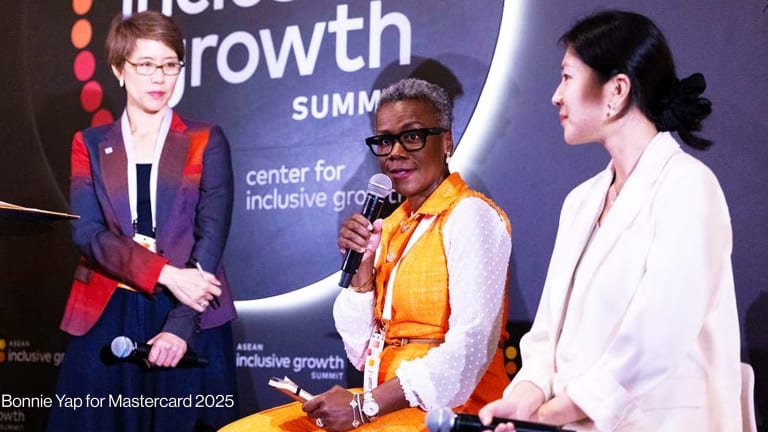
Old concepts are tricky. They’re not seen as old concepts but as simply “the way things are.” So as the world starts changing, people reach for the tools they’ve always known and view new tools as trends or fads.
For example, one of yesterday’s tools taken for granted is money and the banking system. How often do you consider where your money comes from, who creates it, and how things might be different? Try having a conversation about doing away with our money and someone will inevitably suggest a barter system. That’s how limited our imagination is — and how well national currencies have branded themselves.
However, over the last 30 years, we’ve experienced a radical shift in how information is created and shared. As the dissemination of data became decentralized, the centralized information power structure collapsed — network TV, newspapers, publishing houses, and the post office. The internet came like a revolution, radically democratizing information. As a result, today everyone has a soapbox, is a reporter, a filmmaker, a photographer, an artist, or even an encyclopedist.
While we might regret the loss of certain things — such as personal letter writing — no one is suggesting a return to centralized information. Or that the internet is a fad or scam. In fact, we don’t think of the decentralization of information as a problem. On the contrary, we see it as an inevitable result of technological and historical forces.
Crypto can instantaneously and automatically share your data’s value with you as you become a partner, not a product.
—Yet our financial system remains stubbornly stuck in an industrial age meant to serve the needs of oil-based manufacturing. Yes, it takes tremendous centralized capital to find oil, dig it out of the ground, then process and distribute it. And when a nation’s industrial economy needs that oil to run, that nation feels the need to mobilize its armed forces to control the oil in the world, even if it’s under the ground of another country. War, like oil, takes massive centralization of capital. Such is how our economy is structured: to secure oil.
But we no longer live in an industrial or even an oil-based economy. As a story The Economist published in May 2017 said, “The World’s Most Valuable Resource is No Longer Oil, But Data.” There is therefore a vast discrepancy between our economic system — designed to secure oil — and our actual economy, which is built on monetizing people’s information, attention, and creativity.
Using Industrial Age economic tools for the Information Age has been disastrous
Armed with the speed and reach of decentralized information, the existing economic system has extracted and hoarded such vast amounts of wealth in one place — for example, the Silicon Valley — as have never been seen on the planet before. Meanwhile, 80% of people in South Asia and sub-Saharan Africa live on less than $1.90 a day, approximately nine million people die of starvation every year, and the wealth gap keeps growing at an exponential rate.
Information is flowing every which way but the value generated by that information — all the money made by social networks and the sharing economy — keeps flowing in one direction: upward to the few people running these corporations, which is to say, Facebook and Google extract our information, attention, and creativity and sell it as if it were oil. Those tech companies, however, don’t have the same capital demands as, say, ExxonMobil. The extraction and sale of our data is more or less immediate and delivered at near-zero marginal costs. This explains the rapid financial success of these companies.
Where cryptocurrency comes in
What decentralization and cryptocurrency can offer is a set of Information Age economic tools that can increase the efficiency of how money travels and how value is distributed. Payments are suddenly instantaneous. Welfare checks, stimulus payments, taxes: Those can all be distributed and collected instantaneously, allowing capital to flow between parties without all the costly intermediaries which slow it down.
How nonprofits are navigating the rise of cryptocurrency giving
As the number of crypto billionaires climbs, so too will the number of nonprofits that accept these digital assets, making it all the more important for early adopters to share how they are navigating this new frontier.
But decentralization and cryptocurrency also offer a more efficient and fair distribution of wealth itself. As enormous amounts of new value and wealth are generated by this information economy, information age economic tools have the ability to distribute that value and wealth quickly, efficiently, and fairly.
Rather than Facebook taking all your data, selling it, and keeping all the profits for itself, crypto can instantaneously and automatically share your data’s value with you as you become a partner, not a product. If Facebook even wanted to share their profits with you — it being your information and activity — it would be prohibitively expensive, but with cryptocurrency and distributed systems, micropayments can be paid automatically and instantaneously at near-zero cost. Cryptocurrency is the currency of the information age, traveling the same pipes.
Wealth would then flow just as information does — not just up to a singular point where it’s hoarded by a small class of billionaires — but flow every which way, to all corners of the globe, creating the opportunity to eliminate poverty worldwide. Just as the internet radically democratized access to information, revolutionizing how we know things, decentralization and cryptocurrency offer radical democratization of access to the economy and to the massive wealth of the information age.
Imagine every person as an endless and regenerative source of value — all that information, attention, and creativity, which now makes a few people extraordinarily wealthy, can now provide a bottom-up, universal basic income for each person.
This is an opportunity to eliminate global poverty and its many effects such as disease, war, starvation, and death. Every person becomes an oil well — but oil for which no war needs to be fought and nothing burned to scorch the earth.
Nations and their banking institutions are understandably slow to adopt: Decentralization means the relinquishing of the state money monopoly while a decentralized, peer-to-peer economy eliminates the need for all those financial intermediaries. But to continue using yesterday’s industrial age banking tools for today’s information economy perpetuates economic violence. Very few are profiting while an overwhelming amount of the world’s population is suffering. So rather than wait for them to get on board, let’s keep building the tools that make the information resource economy a reality.
Learn more about how Anatha is building DeFi tools that put human needs first.








